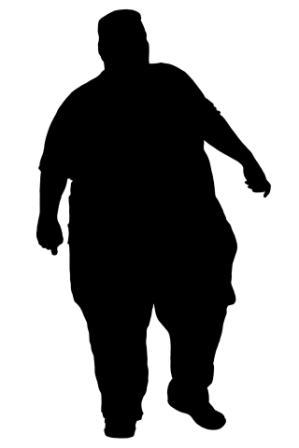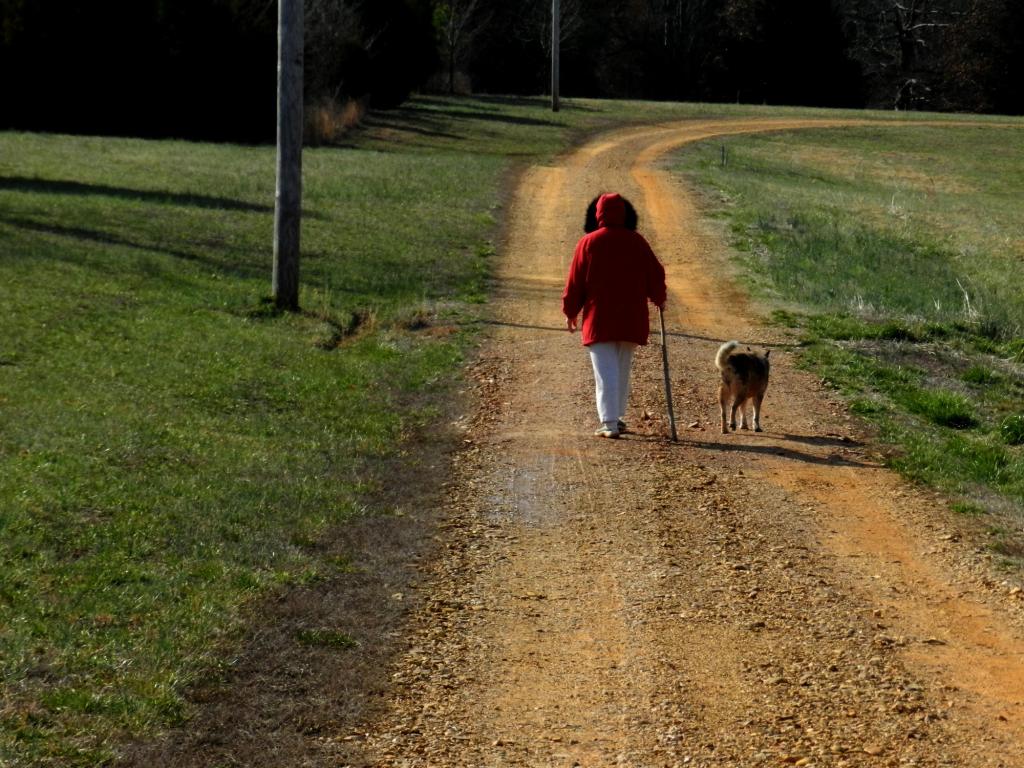Contact Bruce
About
PWP
Links
Photo
Credits:-
Round Woman
(clarita, Morguefile)
Obese Human
(DodgertonSkillhause, Morguefile)
Fruit Basket
(Pellinni, Morguefile)
Dog Walk
(pippalou, Morguefile)
Japan Bed
(Seemann, Morguefile)
Forest Path
(Ben_Kerckx, Pixabay)
Happy Weight
(clarita, Morguefile)
Losing Weight
(Tumisu, Pixabay)
Obesity graphic
(905513, Pixabay)
|
 Overweight Overweight
Introduction
Historically,
being a bigger person
was valued, being a sign of wealth, fertility and ability to survive a
famine. But in a modern Rich World with its plentiful supply of food,
these plusses are lost.
In fact, obesity
(excessive
body fat) is regarded as one of the most serious health problems of the
21st century. It is a leading cause of preventable death worldwide,
with increasing rates in adults and children (Wikipedia,
accessed 29 October 2017).
So,
here is a simple and frugal lifestyle plan to handling weighty matters.
It worked for me.
It requires commitment and effort, as well as seeing the danger of
doing nothing.
Diet
In my experience, diet was the biggest factor to improving my body.
Humans are adapted evolutionarily to a wide range of diets (different
proportions of protein, carbohydrate, fat), as we have
populated
vastly different places, and nature (unlike the supermarket) has its
cycles. So be calm about proportions.
Try and deeply sense what your body needs. Consider:-
- Added sugar is
the villain. Probably the most helpful advice is reduce
foods with added sugars (junk). Evolutionarily, the animal in us senses
that
sweet food is safe to eat, but in a modern world where so many foods
are made sweet, we have messed up this helpful instinct. So, minimise
foods with added sugar and fructose. In my experience, foods like fruit
with natural (not-added) sugars are fine. Read more here,
here,
here.
- Fat is the
innocent that has
been unjustly vilified. Fat is necessary and good for us. Every human
cell requires fat! The non-water part of the brain is 60%
fat. Feeling full comes from adequate fats, not endless
junk. Choose healthy fats like avocado, olive oil and
coconut butter and eat plentifully! Example of successful high fat
diet: Tyson
Fury.
- Eat
organic food if you
can afford it. I believe it should be a human right to access it. This
reduces your intake of drugs, hormones and pesticides which may mess
with your body's natural systems.
- Begin
to make dietary adjustments slowly and surely. For example, switch to
darker chocolate.
- Try
eating less. Smaller
plates may help. It better simulates our evolutionary past, where often
food might be scarce. So, most meals, leave with a stomach 'not quite
full' feeling. I know it is challenging, as you are fighting
another evolutionary pattern: to feast when food is
available/plentiful!
- Learn how to
prepare food and cook from
scratch. Avoid processed
foods. Especially avoid ultra-processed
food - see here,
here,
here.
Cooking from scratch will take more time. You just need
to prioritise it. You could start with one day a week of it. It can
feel very satisfying and healthy.
- Eat
vegetables and
fruit plentifully. Some advise avoiding fruit because of its sugar
content, but I disagree as it is not added sugar. I love smoothies made
with a Vitamix or Blendtec or similar - see GreenSmoothieGirl
for inspiration.
- Water
is your friend.
Cut out fizzy drinks, diet drinks, any drinks with added sugars. Tea,
especially herbal tea, is good - but keep clear of added
sweeteners.
- 'As
Dr Orbach explains, this is one of the
fundamental truths about all diets – or, indeed,
‘transformation’ plans. “The more we rely
on advice from others, the more we
lose touch with our own appetite and eating instincts. Then it becomes
a cycle.
Our bodies no longer know how to regulate their own mealtimes. We
don’t get the
normal hunger signals or fullness signals. And we don’t trust
them when we do.”
Basically, we become reliant on diets, and dieting becomes another
coded habit
we can’t quite kick.' (BBC,
posted 28 September 2018, accessed 29 September 2018)
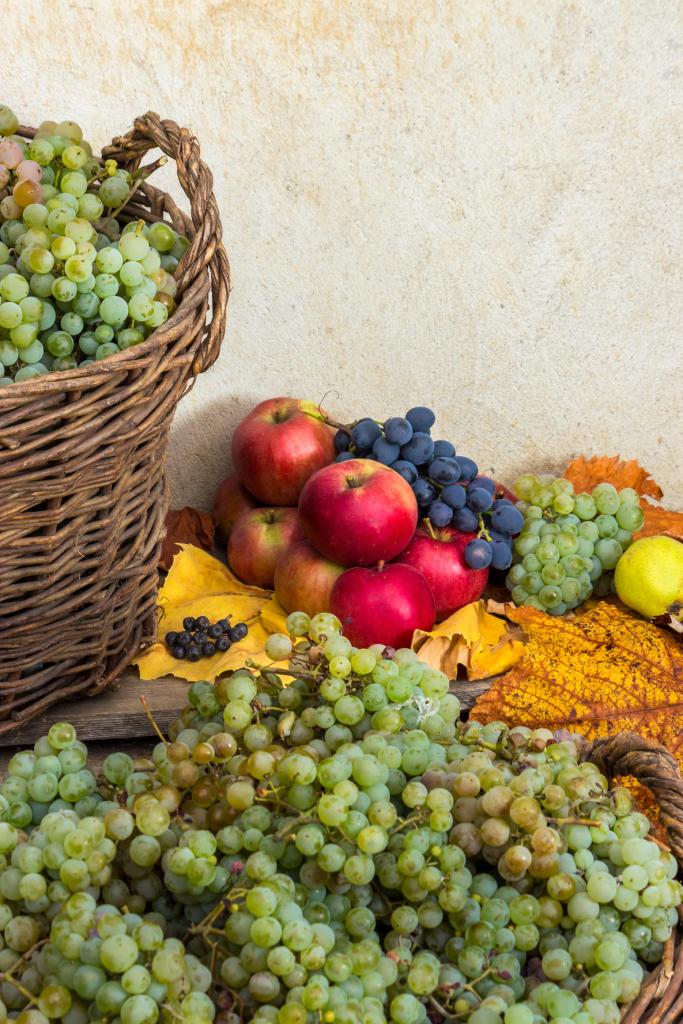
Exercise
Movement is life. Get moving.
Humans have become far too sedentary. Where possible and safe:-
- Choose
walking over the likes of cars, elevators, etc.
- Try
and daily take a brisk walk of 30 minutes. Maybe get
a dog?
- Stand
rather than sit,
whether in the office, public transport, or at home. Try and stand for
three hours daily (e.g. only use your laptop when standing). If you
must sit, take frequent breaks (e.g. every 30 minutes) and move! Learn
more here.
- There
are so many opportunities every day to practise mini-strength tasks,
like carrying your shopping to the car. "The best overall
workout program is the one the individual will actually use regularly."
(Mike
Mahler, undated, accessed 10 December 2017)
"People
are sitting down at work, then sitting in the car and then
sitting down in front of the television. Your metabolic rate crashes to
an
absolute minimum. It isn't natural. Humans are designed to stand up and
keep
moving." (Dr John Buckley cited at BBC, posted
11 December 2015,
accessed 12 December 2015)
Sleep
&
Body Clock
Throw out your body clock and you are likely to sleep badly, which
means more chance of eating too much and gorging on junk food. See here, here.
Also, things like artificial light and technology gadgets will throw
out your natural rhythms. So:-
- When
using gadgets in the evening, reduce exposure to blue light by using a
program like f.lux
or similar.
- Avoid
bright light and gadgets for at least one hour before bed.
- Do
not have any gadgets in the bedroom.
- Realise
how important sleep is to your well-being!
Psychological
Issues
- Stress:
Excessive stress in your life will make you eat more,
especially junk food.
'When
the body is stressed
it produces too much cortisol, which makes us more likely to over-eat -
and not
just any kind of foods, but those which are high in fat and sugar.' (BBC,
posted and accessed
25/4/2020; also see here,
here).
Can you simplify
your life? A simpler life is likely to be a more relaxed life...
- PTSD
(Post-traumatic stress
disorder): Sometimes, extra weight acts as a barrier or
protection
against past harsh experiences. Ideally you need to gradually face and
heal these dark experiences.
- Counselling
may help. But this may be costly.
- Flower
essences may
help and cost little. Rescue Remedy (also called Five Flower Remedy)
alone may achieve wonders! You can do-it-yourself, prescribing flower
remedies for yourself (e.g. see here).
- Be
aware this could be a long journey, especially if, for
example, you unearth serious childhood abuse. Read one such story here.
Other
Considerations
- "You can accept yourself as you are. Be proud of being big." Katie
(cited at BBC's helpful article on this issue, posted and
accessed 22 September 2018) says: "I’m no
longer trying to change myself to fit
society. I’m trying to change society so it can fit me." [Also
see here.]
- There is a
genetic component to being a big person. Heritability
of body weight is 40%, to 70%. In
other
worlds, you may be naturally large! Nevertheless, addressing world
poverty will create less obesity, as heritability of obesity when poor
is 70%.
- Strongmen and strongwomen and similar
others need to be huge.
- Any drug you are taking may be messing with your body's natural
systems. Try and demedicalise!
Quotes
"Obesity has never been a ‘personal problem’.
Healthcare professionals need to get wise to the fact that many
individuals affected are powerless to overcome the obesogenic
environment in which they live, notably the ultra-processed food which
slick advertising and relentless encourages them to eat. They are
invariably cash-poor and depend on this cheap but less than healthy
food to live – an environment from which they have no
escape." (Tam Fry, the chairman of the UK's National
Obesity Forum, quoted in The
Guardian, posted and accessed 10 August 2022)
Bohannon [Cat Bohannon] includes in her Introduction [to Eve]
recent research into women’s “gluteofemoral” fat (on
hips, buttocks, and upper thigh) — ie., the
“stubborn” padding that a woman might turn to liposuction
to remove — writing that it is composed of unique and essential
lipids (accumulated since childhood) that are vital during pregnancy
and breastfeeding to build a baby’s brain and eyes. But
apparently no one, before the author, ever asked what the ramifications
might be when a post-liposuction woman becomes pregnant.
(Krista, review excerpt of Eve by Cat Bohannon, review posted 26 July 2023, accessed 10 October 2023)
The idea that we need to tame our bodies to be thin dates back to at least the Enlightenment [late 17c to early 19C],
with distinctly racist roots. It can be traced back to the idea that
those in bigger bodies lack self-control and refinement, says Sabrina
Strings, a professor of Black studies at the University of California,
Santa Barbara, who studies portrayals of gender, race and bodies.
(Hannah Seo, The Guardian, posted and accessed 4 April 2025)
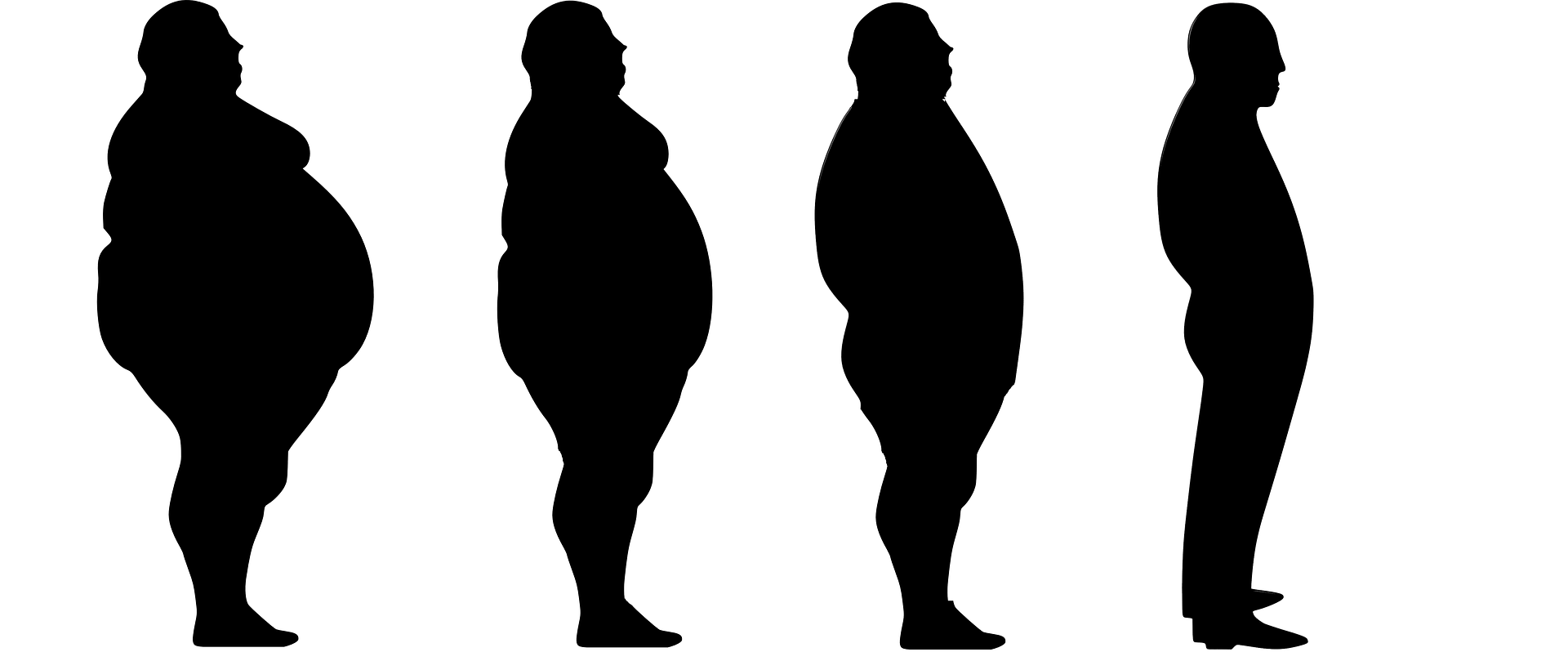
Resources
- National
Obesity Forum [Health professionals address the UK obesity
epidemic].
- Gut reaction: the surprising power of microbes (Ed Yong, The Guardian, 2016)
[Most of us think of microbes as germs to be feared and killed. In fact
they hold the key to improving our health – and may be the key to
tackling obesity.].
- Why stress
makes you fat (BBC, 2018).
- Five things
you might be surprised affect weight (BBC, 2018)
[Interesting, although don't agree with all the advice, or find it
limited. Thus, also see: 'Microbiome';
'Fasting'; 'The Conflict
between Evolutionary Skills & Modern Life'.].
- Obesity
and BMI: 'If I wasn't this size I wouldn't have a job' (BBC,
2018).
- The places
where too many are fat and too many are thin (BBC,
2018). [9
of every 10 countries are in the grip of a health epidemic known as the
"double burden" - where overweight and undernourished people live
side-by-side].
- Coronavirus:
Does being overweight or obese affect how ill people get? (BBC,
2020).
- Body
neutrality: What if you don't really love or hate your body? (BBC,
2020).
- Giles
Yeo: ‘Let’s consider the type of food we eat, not
fixate on calories’ (The Guardian, 2021)
["If we manage to cure poverty, childhood poverty in particular, we can
drop the heritable risk of obesity from 70% to 40% without even
touching the biology of the system."].
- Poor
sleep may hinder attempts to maintain weight loss, study finds (The Guardian, 2022).
- Videos on healthy eating can help obese children lose weight, study finds (The Guardian, 2022)
[As effective as face-to-face appointments. Watching videos about how
to cook, eat less and choose healthier foods can help obese children
lose weight, reduce their risk of diabetes and become happier.].
- BMI: why experts are calling for better ways of assessing health than a body mass index (The Guardian, 2022).
- Ozempic has won, body positivity has lost. And I want no part of it (Rachel Pick, The Guardian, 2023).
- Don’t cheer the scale: Doctors and dieticians untangling body size from health (Lydia Hales, The Guardian, 2023)
[Healthcare professionals, from advanced sports dieticians to GPs,
are focusing on more robust health measures than weight].
- The thin-obsessed world is growing more vicious by the minute. But fat people aren’t going anywhere (Rebecca Shaw, The Guardian, 2025) [Allies needed].
- ‘Plot twist - I’m still a fat person!’: meet the people proving you can be fit at any size (The Guardian, 2025)
[In the age of Ozempic and extreme dieting, slimness is still
prized – but you don’t have to shrink to be
powerful, supple and healthy].
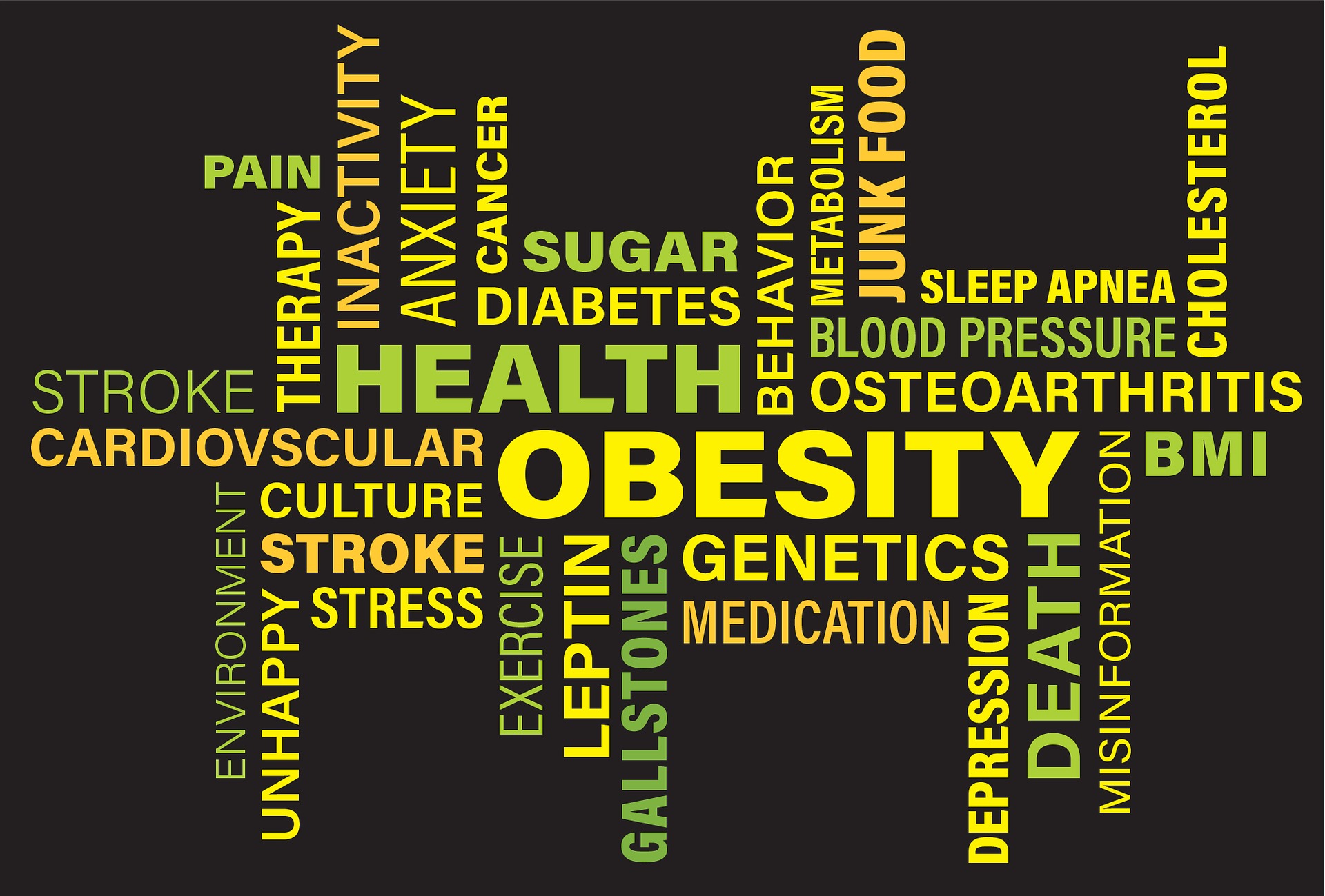
|
Also see:-
Eating Disorders
Physical Body
Diet
articles
Health
articles
|
 Overweight
Overweight
 Overweight
Overweight
 Overweight
Overweight